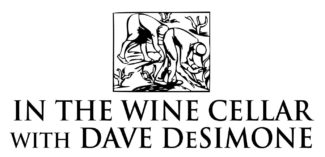In France’s southern Rhône Valley, Mont Ventoux offers plenty of drama both for cyclists and winegrowers. On 13 occasions since 1951, the tortuous switchbacks of “The Giant of Provence,” as the mountain is called in France, figured prominently in the famous Tour de France bicycle race. But while the Tour de France visits only occasionally, the rest of the time Mont Ventoux dramatically influences more than 15,000 acres of vineyards in the foothills and plains surrounding its base.
Mont Ventoux literally refers to “windy mountain.” Powerful, chilly winds frequently swing down the imposing slopes to test vineyard workers’ mettle. But the winds also have beneficial effects by moderating summer temperatures. This slows the grape ripening process.
The fruit retains freshness and distinct flavors even while hanging longer on the vines. Longer hang time in the region’s luminous Mediterranean sunshine ripens grape skins and stems thoroughly to shed astringent tannins. Equally important, Mont Ventoux winds dry the vines, thus reducing disease threats from mildew and odium.
Winegrowers have long recognized the ideal grape growing conditions near Mont Ventoux. Commercial winemaking artifacts from the area date back to the Roman era, more than 2,000 years ago. In the 20th century, many Ventoux wine growers formed cooperatives which purchased grapes on a high-volume basis to produce easy drinking, but not particularly distinctive, wines. Négociant merchants also purchased large volumes of grapes and unfinished wines to create popular brands such “La Vielle Ferme Ventoux.”
REFOCUSING ON TERROIR
More recently, individual, privately owned Ventoux domaines have produced terroir-focused wines. The growers bottle their own wines and generally seek to heighten quality by highlighting the region’s traditional grapes and distinctive soils.
Ventoux’s traditional grape varieties include: Clairette, grenache blanc, bourboulenc and roussanne for white wines; grenache noir, syrah and cinsault for rosés; and grenache noir, syrah, mourvèdre and carignan for red wines. The soils range from chalky limestone on restanques (man-made stone terraces) at Mont Ventoux’s base to sand and clay soils with limestone debris and large, round stones in the surrounding plains.
Many private domaine growers — and increasingly cooperatives — farm with organic and biodynamic practices to capture faithful reflections of the region’s distinct soils and microclimates in the bottle. Prices of private domaine wines remain extremely reasonable given Ventoux’s still growing reputation for quality production.

Try the following tasty bottles:
• The 2018 Domaine du Colibri, “La Petite Tour Rosé,” A.O.C. Ventoux, France (Available online nationwide for an average retail price of $12; check www.wine-searcher.com) comes from Champagne native Olivier Legranger. He studied enology and then made wines around the world before coming to the Rhône Valley in Châteauneuf-du-Pape. Legranger founded his own estate, Domaine du Colibri, in 2016 in the village of Caromb in northern Ventoux.
He takes full advantage of Caromb’s diverse, windy terroir to make engaging yet high quality wines. The “Le Petite Tour” Ventoux Rosé from grenache noir and cinsault grapes offers a gorgeous salmon color, enticing fruity aromas and crisp citrus and succulent strawberry flavors. It finishes fresh and fruity, but dry. Try it with scallops sautéed with olive oil and Herbes de Provence. Highly Recommended.
• The 2017 Domaine de Fondrèche Rouge, A.O.C. Ventoux, France (Luxury 80537; $16.99) comes from a team led by a talented veteran winegrower, Sébastien Vincenti. His careful approach minimizes impacts on the domaine’s vineyard soils which feature the entire range of Ventoux types. In the cellar, a long, gentle fermentation precedes finishing the wine in a combination of steel vats, large previously-used oak foudre tanks and large concrete eggs.
The wine relies on grenache, syrah and mourvèdre for beautifully balanced aromas of blackberries, smoked meats and wild Provencal herbs. Concentrated, fresh black fruit flavors follow with hints of herbs and black liquorice. Bright acidity and soft, elegant tannins carry the ripe, fruity finish. Try it with roasted pork shanks with mashed potatoes. Highly Recommended.
• The 2016 Château Juvenal, “Terre du Petit Homme” Rouge, A.O.C. Ventoux, France (Available from MacArthur Beverage: $17.99) comes from old vines of grenache, syrah and mourvèdre. They grow in limestone and gravelly clay soils at high-altitude on rugged “restanque” stone wall terraces just northwest of Mont Ventoux. Surrounded by wild herbs, oaks and olive trees, the sunny location produces marvelously ripe yet fresh and delicious grapes.
This wine delivers ripe dark fruit and spicy aromas from aging in oak barrels. The medium body balances plenty of freshness with smooth tannins. Pair it with old-fashioned pot roast with vegetables. Recommended.

• The 2017 Château Pesquié, “Terrasses” Rouge, A.O.C. Ventoux, France (Available online nationwide for an average price of $15; check wine-searcher.com for specific retailers) comes from the Chaudièrie family estate in Mormoiron in the foothills near Mont Ventoux. Cultivation of the vines occurs organically with conversion to biodynamie, and Alexandre Chaudièrie’s team pays close attention to every little detail in the vineyard work.
This wine represents the estate’s “workhorse” red. It offers a 50-50 blend of syrah and grenache fermented and aged in concrete tanks. The wine opens with pure dark red fruit with smoky, meaty complexity. The lively, pure dark fruit flavors have rich concentration and balance with fine freshness and smooth tannins. This is a pure, energetic and delicious Ventoux red at a great price with excellent U.S. availability. Pair it with barbecued ribs. Highly Recommended.
What are your experiences with wines from Ventoux? Share your thoughts in the comments below. Cheers!

